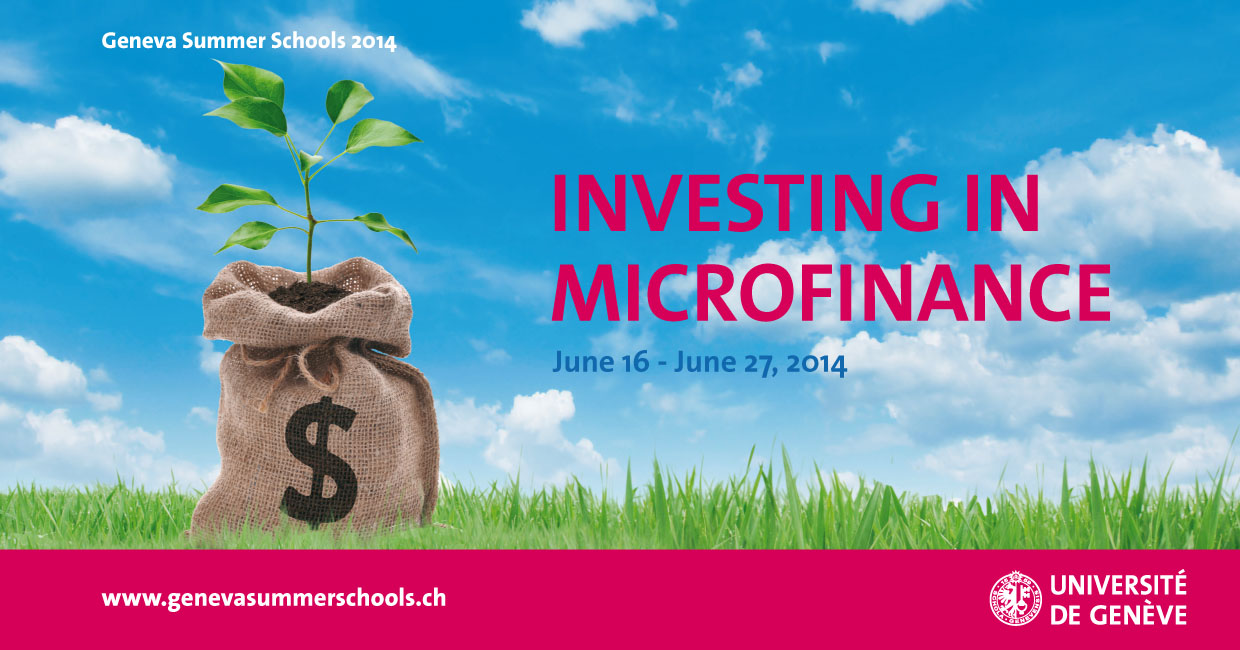
June 16 - June 27, 2014
Microfinance means financing clients who normally would not be bankable: poor households and small enterprises. The institutions providing these services have on the whole shown to be successful in reaching thousands of poor people and at the same time become profitable. As a result microfinance has become increasingly attractive to investors.
Topics to be considered include:
- investors in microfinance: who is who and when is an investor "social"?
- volumes: where does the money go?
- how has the financial crisis affected investment in microfinance?
- what kind of microfinance institution are a favourite asset?
- debt and equity and other instruments
- microfinance investment vehicles: examples from Geneva
- effects of investments on MFIs (governance, business model, poverty focus)
- the limits of investments in microfinance: is there a need for public policy?
Geneva is a leading global banking centre. It is also a hub of international and non-governmental organizations. It has a tradition of reflection and lively dialogues on the border issues between finance and ethics. This intensive course will give students the opportunity to interact with key players in the micro-finance and responsible finance community in Geneva through lectures, site visits, and roundtables. It will allow them to learn about this innovative concept, explore its limitations and strengths in the 21st century.
- Course Program 2014
(Draft: 22.01.2014)
Professor Bernd Balkenhol
University of Geneva
Professor Rajna Gibson
Geneva Finance Research Institute
University of Geneva
Faculty list will be posted in early 2014.
Upper year undergraduates and MA students.
The course is open to students from all backgrounds, and no prior experience in finance is necessary.
Tuition Fees: 2300 CHF / Application Deadline: June 13th, 2014


